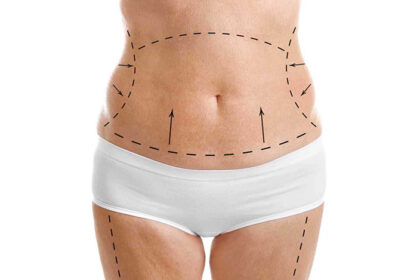Digestive discomfort is a common problem that affects millions of people every day. Whether it’s a burning sensation in your chest, bloating after meals, or general discomfort in your upper abdomen, you may be dealing with acid reflux, heartburn, or indigestion. Though these terms are often used interchangeably, they each describe different conditions with overlapping symptoms.
Zoraft Double Action is a combination pharmaceutical product formulated to provide fast and long-lasting relief from symptoms of acid reflux, heartburn, and indigestion. It typically combines two active ingredients: an antacid (such as calcium carbonate or magnesium hydroxide) for immediate acid neutralization and an H2-receptor antagonist or proton pump inhibitor (PPI) (like ranitidine or omeprazole) for prolonged acid suppression.
In this blog, we’ll unpack what each of these digestive issues means, explore the underlying causes, highlight the symptoms, and offer proven strategies for relief and prevention.
What Is Acid Reflux?
Acid reflux occurs when stomach acid backs up into the esophagus, the tube that connects your throat to your stomach. This happens when the lower esophageal sphincter (LES) — a muscle that acts like a valve — becomes weak or relaxes inappropriately. Normally, the LES opens to let food into the stomach and then closes to keep stomach contents where they belong. But when it doesn’t close properly, acid can travel upwards, leading to irritation and discomfort.
If acid reflux occurs frequently (more than twice a week), it may be diagnosed as gastroesophageal reflux disease (GERD).
Common Causes of Acid Reflux:
-
Overeating or eating large meals
-
Lying down immediately after eating
-
Obesity or pregnancy (increased pressure on the abdomen)
-
Smoking
-
Consuming trigger foods: spicy, fatty, or acidic foods; caffeine; chocolate; alcohol
-
Certain medications (e.g., NSAIDs, antihistamines, muscle relaxers)
What Is Heartburn?
Heartburn is a symptom of acid reflux. It feels like a burning pain or discomfort in the chest, usually behind the breastbone. It often rises in the chest and may move up toward the neck and throat. The sensation can last a few minutes to several hours and is typically worse after eating, lying down, or bending over.
Although heartburn is common — especially after a heavy or spicy meal — frequent heartburn could be a sign of GERD.
Symptoms of Heartburn:
-
Burning sensation in the chest
-
Sour or bitter taste in the mouth
-
Discomfort that worsens when lying down or after eating
-
A sensation of food stuck in the throat or chest
What Is Indigestion (Dyspepsia)?
Indigestion is a general term that refers to discomfort in the upper abdomen, often related to eating. Unlike acid reflux or heartburn, indigestion doesn’t necessarily involve acid moving into the esophagus. It can occur with or without reflux and may feel like bloating, fullness, or nausea.
Common Causes of Indigestion:
-
Eating too quickly or overeating
-
Fatty or greasy foods
-
Stress and anxiety
-
Stomach infections (e.g., H. pylori)
-
Ulcers or gastritis
-
Use of certain medications (e.g., painkillers, antibiotics, iron supplements)
How Are They Related — and Different?
While acid reflux, heartburn, and indigestion are often discussed together, they are not the same:
| Condition | Definition | Primary Symptoms |
|---|---|---|
| Acid Reflux | Stomach acid flows back into the esophagus | Regurgitation, chest discomfort, sour taste |
| Heartburn | A burning sensation in the chest (symptom of reflux) | Burning chest pain after meals |
| Indigestion | General discomfort in the upper abdomen | Bloating, nausea, fullness, belching |
You can have one condition without the others, or all three at once.
Diagnosing Digestive Discomfort
If you experience persistent symptoms, your doctor may recommend:
-
Endoscopy: A camera is used to inspect your esophagus and stomach lining.
-
pH Monitoring: Measures acid levels in your esophagus.
-
H. pylori test: Checks for infection linked to indigestion and ulcers.
-
Barium swallow X-ray: Shows structural issues in the esophagus or stomach.
Effective Treatment and Relief Strategies
1. Dietary Changes
-
Eat smaller, more frequent meals instead of large, heavy ones.
-
Avoid trigger foods: spicy dishes, citrus fruits, chocolate, caffeine, tomatoes, garlic, onions, and carbonated drinks.
-
Stay upright for at least 2–3 hours after eating.
-
Don’t eat late at night or just before bed.
2. Lifestyle Modifications
-
Lose excess weight: Obesity increases pressure on the stomach.
-
Quit smoking: Tobacco weakens the LES and increases acid production.
-
Sleep with your head elevated: Raising the head of your bed by 6–8 inches can help prevent nighttime reflux.
-
Wear loose-fitting clothes: Tight belts or waistbands can compress the stomach.
3. Over-the-Counter Medications
-
Antacids (e.g., Tums, Rolaids): Neutralize existing stomach acid.
-
H2 blockers (e.g., ranitidine, famotidine): Reduce acid production.
-
Proton pump inhibitors (PPIs) (e.g., omeprazole, lansoprazole): Stronger acid blockers for chronic symptoms.
4. Prescription Medications and Procedures
For severe or persistent GERD, your doctor may prescribe stronger PPIs or recommend surgical options like fundoplication — a procedure that tightens the LES to prevent reflux.
Natural and Holistic Approaches
Some people find relief through alternative methods, such as:
-
Ginger tea: Known to reduce nausea and improve digestion.
-
Chamomile: Calming for the stomach and helpful in reducing inflammation.
-
Licorice root (DGL): May help protect the stomach lining.
-
Probiotics: Can support healthy gut bacteria and aid digestion.
Always check with your healthcare provider before starting herbal remedies, especially if you’re on medications.
When to See a Doctor
Seek medical advice if you experience:
-
Frequent or severe heartburn (2+ times per week)
-
Unexplained weight loss
-
Difficulty swallowing
-
Vomiting blood or black stools
-
Chest pain that radiates to your arm or jaw
These may be signs of serious complications such as ulcers, Barrett’s esophagus, or even heart conditions.
Conclusion
While acid reflux, heartburn, and indigestion are often mild and manageable, they can interfere with daily life and point to deeper health concerns when persistent. By understanding the root causes and making simple, sustainable changes to your diet and lifestyle, you can take control of your digestive health.
If symptoms persist despite home remedies or OTC treatments, don’t hesitate to consult a doctor. A healthy gut is a foundation for overall well-being — and with the right approach, you can enjoy meals without discomfort and live more comfortably, every day.





